In this enlightened age, there are few I believe, but what will acknowledge, that slavery as an institution is a moral & political evil in any country. It is useless to expatiate on its disadvantages – Robert E Lee
[/beautifulquote]Look up in Google ‘History of Slavery’, and one would imagine that slavery only started in the late 16th, early 17th centuries. It was all the nasty white supremacists beating other races into submission and dragging their sorry carcases around the world to do the white man’s heavy lifting for them. This of course is rubbish but, as there is no political mileage in discussing the slave trade in ancient Mesopotamia, c. 1860BC, we are increasingly being sold the lie that slavery is all about white supremacy and has only been around since the whites started colonising.Slavery has been around, all over the world, since mankind moved away from being a hunter / gatherer and began to settle into towns and communities. As a hunter / gatherer would, obviously hunt and gather what they needed to eat for themselves and their families, having a slave in tow wasn’t very practical, another mouth to feed if nothing else and without any benefit. But once agriculture gave people the opportunity to settle having slaves seemed a good idea. Of course, from our viewpoint this was a bad idea, but that’s history for you.
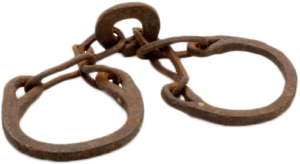 Before the US was even known about, before the UK was a united kingdom, before the Romans rose and fell, before Christ, Buddha and Mohamed there has been a trade in slaves, everywhere.
Before the US was even known about, before the UK was a united kingdom, before the Romans rose and fell, before Christ, Buddha and Mohamed there has been a trade in slaves, everywhere.
And the whole concept of it is far more complex and societally constructed than the history revisionists would have us believe. For them it comes down to ‘White Man Bad’ when the slave trade started in the 1600’s. More duplicitously they completely ignore the African slave trade – by Africans against Africans, the Arab slave trade – by Arabs against anyone they could get their hands on. Slave trades across the world for at least 3,000 years, but all they care about is the last 300 years. I wonder why?
Even the word ‘slave’ pre-dates the new start date for slavery. During the eastward expansion of the Germanic tribes in the 10th century so many Slavs were captured that their racial name becomes the generic term for a ‘slave’.
The Arab trade of slaves in Southeast Africa is one of the oldest slave trades and for which there are plenty of contemporary records and one pre-dates the European transatlantic slave trade by over 700 years. There many ways people came to be slaves, captured in war, kidnapped, individually or as a whole village rounded up and sold by their African neighbours to the Arab slavers. Captured male warriors were more often put to death, more trouble than they were worth. Less troublesome male slaves were often employed as servants, soldiers, or labourers by their owners, while female slaves, including those from Africa, were long traded to the Middle Eastern countries and kingdoms by Arab and Oriental traders as concubines and servants. Arab, African and Oriental traders were involved in the capture and transport of slaves northward across the Sahara desert and the Indian Ocean region into the Middle East, Persia and the Far East.
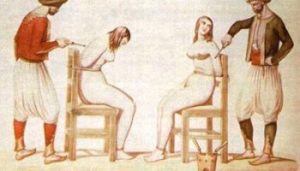
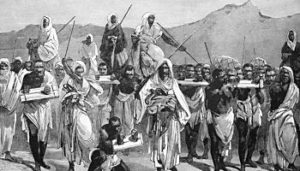 The largest slave trade in the past 1,000 years was the east African where it has been estimated as many as 17 million people were sold into slavery on the coast of the Indian Ocean, the Middle East, and North Africa, and approximately 5 million African slaves were bought by Muslim slave traders and taken from Africa across the Red Sea, Indian Ocean, and Sahara desert between 1500 and 1900. Millions more died in forced marches and not a white man in sight, except as slaves themselves. Even before western colonisation these captives were sold throughout the Middle East. This trade accelerated as better and larger ships led to more trade and greater demand for labour on plantations in the region. Eventually, tens of thousands of captives were being taken every year to work on the spice plantations owned and run by locals in the middle and far east.
The largest slave trade in the past 1,000 years was the east African where it has been estimated as many as 17 million people were sold into slavery on the coast of the Indian Ocean, the Middle East, and North Africa, and approximately 5 million African slaves were bought by Muslim slave traders and taken from Africa across the Red Sea, Indian Ocean, and Sahara desert between 1500 and 1900. Millions more died in forced marches and not a white man in sight, except as slaves themselves. Even before western colonisation these captives were sold throughout the Middle East. This trade accelerated as better and larger ships led to more trade and greater demand for labour on plantations in the region. Eventually, tens of thousands of captives were being taken every year to work on the spice plantations owned and run by locals in the middle and far east.
And yet all we hear about is the white slave traders, taking Africans across the Atlantic to work on plantations in the US and West Indies. They did, it happened, but it wasn’t a scurrilous, white supremacist driven blip in the long course of a human history devoid of slavery. It was business as usual. Something that had been developed over millennia but, in Africa at least, by African themselves and Arabs.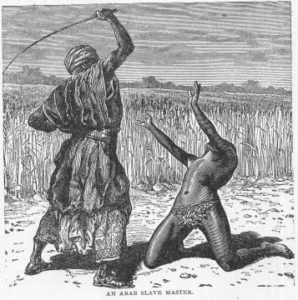
In ancient Rome slaves were a fact of life, one only has to watch television shows like Spartacus or Rome to see how ingrained the idea was in Roman life, in life in general at the time. It was a normal part of everyday living. Some slaves in Rome were owned by individuals and utilised in every area of Roman life. From domestic, public duties, urban crafts and services, agriculture, and mining, slaves were everywhere. The public owned slaves, owned by the state, performed myriad duties including working in temples and other public buildings both in Rome and in the municipalities. Most performed general, basic tasks as servants to the Pontiffs, magistrates, and other officials. They were literally the public servants of the day. Many performed roles such as clerks, secretaries and even tax agents and accountants, and they were allowed to earn money for themselves.
It was big business and slaves were trained for all possible functions, with gladiators fighting to the death for public entertainment at the extreme end. The Roman emperors owned thousands of slaves to indulge their every whim.
The first known opposition of the slave trade was in 200 BC when two Jewish sects, the Essenes and later the Therapeutae, who abhorred slave-owning, believing that slave ownership to be contrary to nature. Instead they would buy slaves in order to free them.
Augustine of Hippo (354 – 430) described slavery as being against God’s intention and resulting from sin. In 1688 Dutch Quakers in Germantown, Pennsylvania, sent an antislavery petition to the Monthly Meeting of Quakers. By 1727 British Quakers had expressed their official disapproval of the slave trade. Three Quaker abolitionists, Benjamin Lay, John Woolman, and Anthony Benezet, devoted their lives to the abolitionist effort from the 1730s to the 1760s, with Lay founding the Negro School in 1770, which would serve more than 250 pupils. In June 1783 a petition from the London Yearly Meeting and signed by over 300 Quakers was presented to Parliament protesting the slave trade.
It was an idea, following on from the enlightenment, whose time had come and increasingly voices for the abolition of the practise grew.
As individuals in the 16th and 17th century their reach was limited, but by agitation and continual condemnation the abolitionist movement grew, in the West. For the African and Arab slavers it was business as usual, even a boom time to some degree as new plantations in the Americas demanded more and more labour.
Finally the weight of opinion grew against slavery and men like William Wilberforce took up the Quakers fight and stood in the Palace of Westminster to condemn the practise.
There is some criticism that even then it took twenty years to overcome the resistance of business against getting rid of their source of cheap labour. Wilberforce and others like William Pitt. William Grenville, Thomas Clarkson, Hannah More and James Ramsay agitated and finally passed a bill, with an outstanding majority to abolish the slave trade.
Great Britain was the first modern sovereign nation to abolish the practise, the Act created fines for captains who continued with the trade. These fines could be up to £100 per enslaved person found on a ship. The Royal Navy established the West Africa Squadron in 1808 to patrol the coast of West Africa. Between then and 1860 they seized over 1,600 slave ships and freed 150,000 Africans who were aboard. Slaves ships were declared to be the same as pirates and were treated accordingly.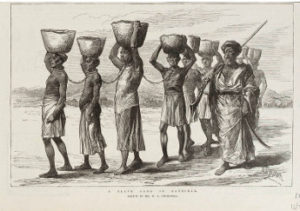
Contrary to what the revisionists would have us believe the slave trade was not a result of white supremacy or colonisation. It was not the result of the subjugation of other races by whites. Western civilisations came into the slave trade fairly late in the history of it. But it was a western parliament who, with the benefit of enlightened thought understood what an abhorrent practise it was.
There is a whole history of individuals and states freeing or banning slavery, from ancient Athens and the Xin Dynasty in China, but it continued until a Nation stood up and did something about it. The British Parliament unilaterally abolished slavery, the Royal Navy patrolled the seven seas seeking out and breaking up slaves routes, captured slaves ships and freed slaves. It was British sailors and marines who fought and died to release slaves and destroy slaves routes, mainly against Arab and African slavers. Hundreds of African leaders fought against the outlawing of the trade, like the King of Bonny, which is now part of Nigeria, who was incensed that his lucrative trade was being destroyed. The US came to the party in 1819 and established the African Slave Trade Patrol to compliment what the Royal Navy was doing.[beautifulquote align=”full” cite=””]
We think this trade must go on. That is the verdict of our oracle and the priests. They say that your country, however great, can never stop a trade ordained by God himself – The King of Bonny
[/beautifulquote]And what of the Arabs. Saudi Arabia and North Yemen abolished slavery in 1962, Oman in 1970, Mauritania in 1981 and Niger in 2003.
According to the revisionists slavery was because of the white man, poor old Nelson, a man of his time, is being tried and convicted by a shallow and deplorable attempt to rewrite history to suite today’s warped political agenda. He, like Stonewall Jackson and Robert E. Lee, were honourable people whose memories are being tarnished for no reason except a twisted and corrupt political correctness. If we keep allowing history to be rewritten, we are going to end up reliving it.
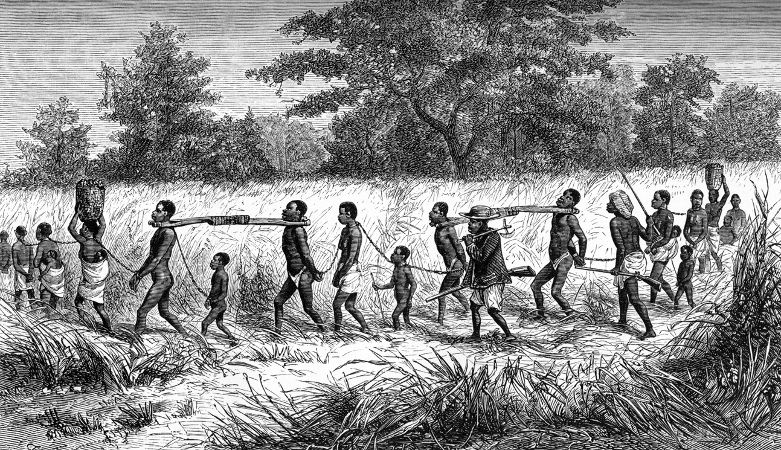



Hola I discovered your weblog using msn. This is an extremely smartly written article. gracias